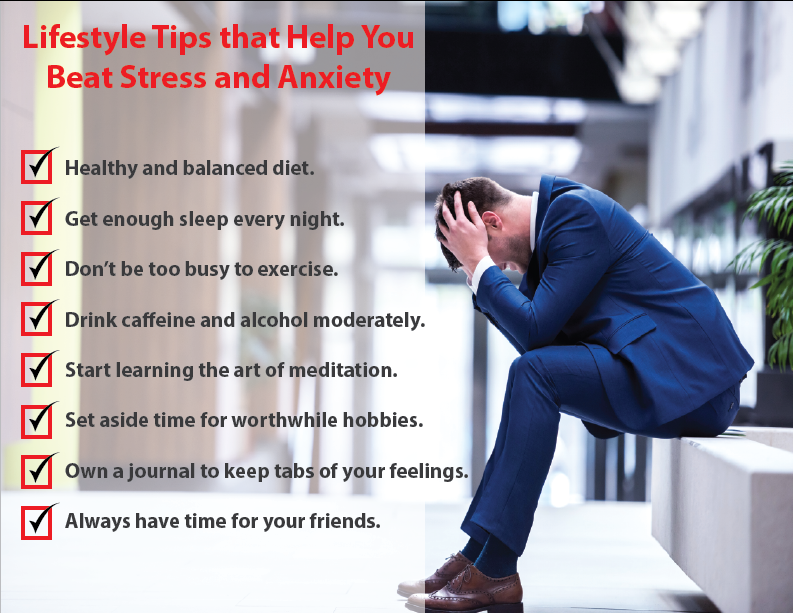Are stress and anxiety the same? Anxiety is often a product of long-term exposure to stress while stress is one of the major components of an anxiety disorder. So, as you can see, stress and anxiety are two conditions that are not entirely different from each other. However, in many ways, they seem to contribute to each other.
Our instinctive reactions are responsible for releasing our stress hormones. These reactions are controlled by our subconscious minds. Any reaction to a stimulus, real or imagined, that results in negative or even heightened feelings, may be perceived by the subconscious as a ‘threat’.
Our subconscious mind, which operates on feelings, reacts the same way to any perceived threat, either verbal or physical in origin. Experiencing some stress or challenges can be actually beneficial as it can help us to exert more effort, physically and mentally.
The problem arises when the stress responses are repeatedly triggered and there is no corresponding ‘fight or flight’ reaction to utilize and dissipate the released stress hormones. If this happens the body and mind remain in a state of agitation and this is when we feel anxiety and stress.
If this scenario continuously repeats itself, the stress can become chronic, and when stress and anxiety reach the chronic stage a person can expect to suffer damaging consequences. So, while incidences of stress can be beneficial, when they occur repeatedly with no resolution the results can also become long-lasting and harmful to a person’s overall health.
How Stress Affects the Brain
In order to understand how stress changes the brain, we must first understand how our body’s limbic system functions. The limbic system consists of the hippocampus, cingulate cortex, and amygdala. Experts refer to the limbic system as the “anxiety” switch. This is where emotions and drives are regulated. A human’s desire for food, desire to be the best, to be loved, to be appreciated, and to be special are all being controlled by the limbic system. It is also the reservoir of other emotions such as fear, pain, anger, happiness, and pleasure.
When a person experiences an incident or behavior that hinders their effort to achieve pleasure or fulfill their desire, the limbic system also works to help prevent them from experiencing pain or sadness, then and in the future.
It does so by repressing negative feelings relating to the current incident while encouraging the individual to repeat those acts that promote pleasurable feelings and to avoid those that incur emotional pain. People who are successful in coping with their negative feelings are those whose limbic system is functioning at its best. It enables them to react to stress well.
When Stress Harms the Limbic System
However, there are often times when a person’s limbic system is compromised, which will more likely to happen if the body is constantly suffering from stressful situations. Once the limbic system is compromised, a misfiring of neurotransmitters in the brain can occur.
In turn, inappropriate responses to stressful events will manifest as a result of distorted reactions and damaged sensory perceptions that are taking place inside the brain. Unfortunately, if these distorted patterns of responses become chronic, the person’s endocrine, immunological, and neurological systems will also experience some abnormalities. In short, anxiety or depression will now start to develop.
Ongoing studies indicate that stress develops into anxiety due to the following reasons:
The Ability to Cope Well
The inability to deal with life’s pressing issues can cause stress. Prolonged exposure to these adverse situations may lead to the development of a chronic condition if one has poor coping mechanisms. If left unchecked, chronic stress may later develop into an anxiety disorder.
If a person continually relies on alcoholic drinks to be able to get through tough situations, they will eventually diminish their ability to properly cope with stress. This is because alcohol numbs the reactions to stress and if this becomes a habit, the mind will become dependent on drinking to avoid feelings of stress. This will then make a person more inclined to lose their natural ability to cope with stress, thereby paving the way for the onset of anxiety disorder.



Hormonal issues
When an individual is battling with highly stressful issues in life for an extended period of time, there is an increasing risk that their mind and body will experience changes that could adversely impact the proper functioning of neurotransmitter hormones. In other words, the body will become less capable of producing the required brain chemicals and other hormones, at the right time and in the right amounts. When this occurs, physical and mental problems that contribute to the development of anxiety disorder will become more prominent.
Negativity
Experiencing constant bouts of stress will often lead to negative thoughts. A person will begin to dwell on these negative thoughts that run through their mind, day, and night which increases their risk of suffering from anxiety disorder.
Experts agree that persistent stressful thoughts are harmful. They can cause significant changes in a person’s brain chemistry and overall health, even if not accompanied by external events. Unfortunately, these changes can also further diminish the ability to cope with traumatic events and other stressful issues in the future.
Traumatic events
PTSD or post-traumatic stress disorder is a condition experienced by a person who has experienced a traumatic event or events that caused extreme stress. The experience is too much for them to contain or overcome at the time of the incidents. The profound impact of this stress and its subsequent triggers was powerful enough to trigger the development of an extreme anxiety disorder.

